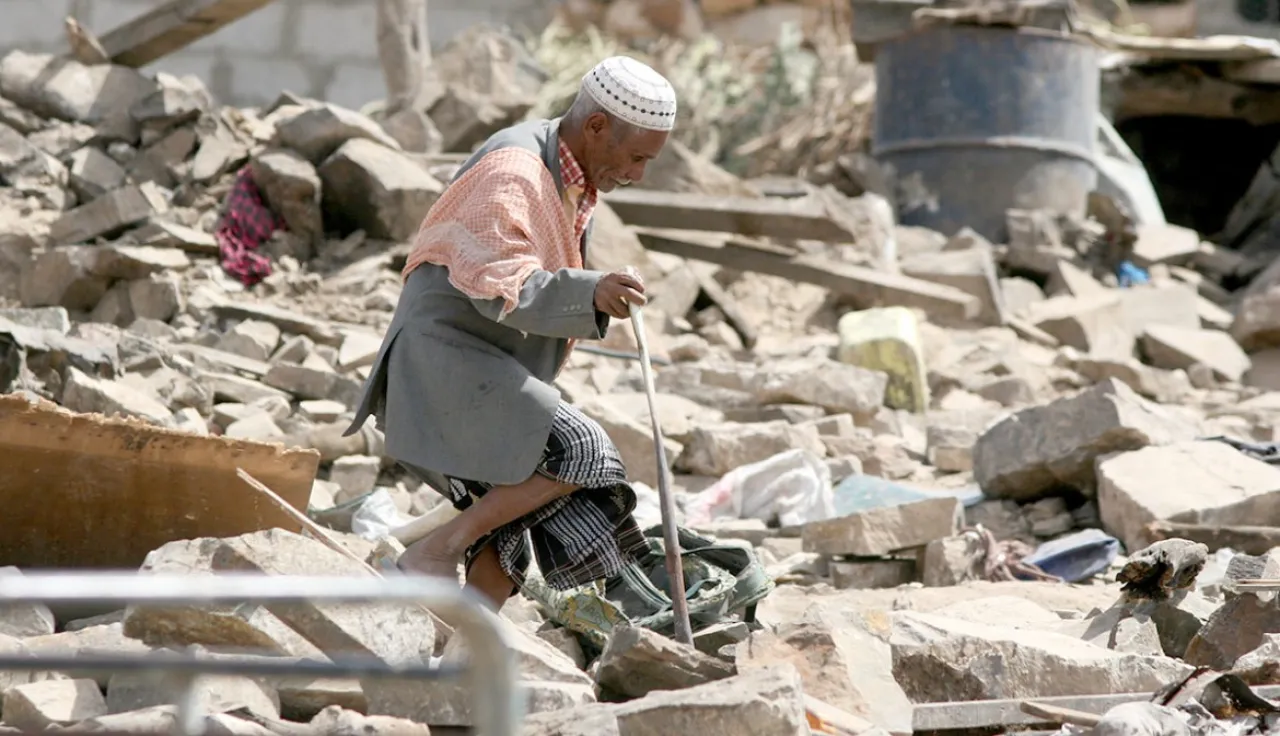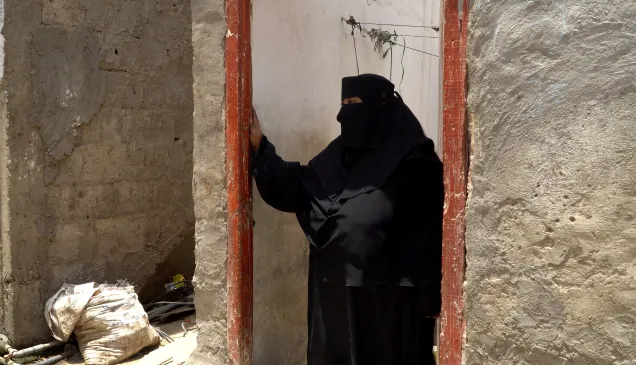Yemen: a country in turmoil, growing humanitarian needs

We at the ICRC have been working across the front lines in Yemen to help hundreds of thousands of people in need, despite worsening security conditions, in what has become one of the world's most acute humanitarian emergencies.
But when I visited Sana'a last week, it was not to take part in an aid distribution or to visit prisoners. I was there to bid farewell to Abdulkarim Ghazi and Mohammed Al-Hakami, two ICRC staff members who were murdered last week, and to mourn their loss, along with the 250 colleagues who worked with them.
When allowed to, the ICRC can help reduce the suffering of civilians. But in Yemen it has become increasingly difficult for us to enter areas affected by the conflict and assist the people.
Today, the country is in turmoil. Our partners at the Yemen Red Crescent Society (YRCS) have seen, since May, four of their volunteers killed while trying to assist civilians. In Aden, a string of serious incidents involving our staff was followed by an attack on our office by a group of armed men. This triggered the evacuation of the office in late August and the suspension of most of our activities there. Last week our two colleagues were shot dead at a checkpoint near Houth, in the northern part of Amran province. Although we have been one of the very few organisations to remain operational in Yemen over the past 5 months, these disturbing developments have forced us, to temporarily suspend our operations across the country. More than a month after the attack on our office in Aden and more than a week after the killing of our two staff members, we are still waiting for the security guarantees - from the parties involved in the fighting - which would allow us to continue operating safely and effectively.
For humanitarians, few things are more distressing than knowing that people desperately need help but not being able to do more - not because you lack the will or capacity to act but because you are prevented from providing aid safely.
The ICRC can only work when government forces and armed groups fully accept our humanitarian role. If they cannot guarantee us safe access or do not unequivocally condemn acts of violence against humanitarian workers, then we will not be able to reach those people who are in dire need All parties to the conflict in Yemen, government or other, must urgently take concrete measures to ensure the safety of ICRC workers and the people we assist while respecting our duty to bring help to those in greatest need.
We are not a 'zero-casualty' organisation and we are ready to accept risks. What we are not ready to accept however, is being deliberately targeted or attacked.
The ICRC in Yemen faces challenges beyond security and access. As the conflict intensifies, our independence and impartiality is routinely challenged. These pressures are not new for our organization with its 150 years of experience in conflict zones. But parties who threaten the security and lives of our staff also, unfortunately, prevent Yemenis from accessing the aid and support that they so desperately need at this time.
Historically, the ICRC and the YRCS have worked across Yemen - a challenging terrain at the best of times - thanks to the understanding and support of different sides, tribes and, most importantly, the Yemeni people. We are independent: we do not take sides. We are impartial: we seek to assist and protect all people affected by the conflict, regardless of their origin, religion, tribe or political affiliation.
This principled approach has made a tangible difference to the lives of millions of Yemenis, particularly since the beginning of this last devastating conflict. Our teams have carried out dozens of relief operations on the front lines.
But the death toll is rising while the fighting goes on unabated. More people are hungry, outbreaks of deadly diseases are a possibility, millions lack access to basic services and the embargo on essential goods continues. We need to step up our assistance work, including deliveries of water, food and medicine, particularly in areas where bombardment or chaos prevents people from accessing even the most basic commodities. If the fighting intensifies yet again, the needs and suffering will continue to grow.
The killing of our colleagues, the attack on our offices and the lack of security for our operations jeopardize not only our own, but all humanitarian relief efforts in the country. We paid an unacceptable price last week. Yet my colleagues in Yemen want to continue their life-saving work, in particular in areas that are off-limits to other humanitarian agencies.
Yemenis are struggling for survival, and their needs are growing by the day. It is imperative that humanitarian workers are allowed to relieve the plight of ordinary Yemenis without threats and without fearing that they may have to pay the ultimate price.
This article by Robert Mardini, regional director for the Near and Middle East at the ICRC was published on 14 September 2015 in Al Arabiya



